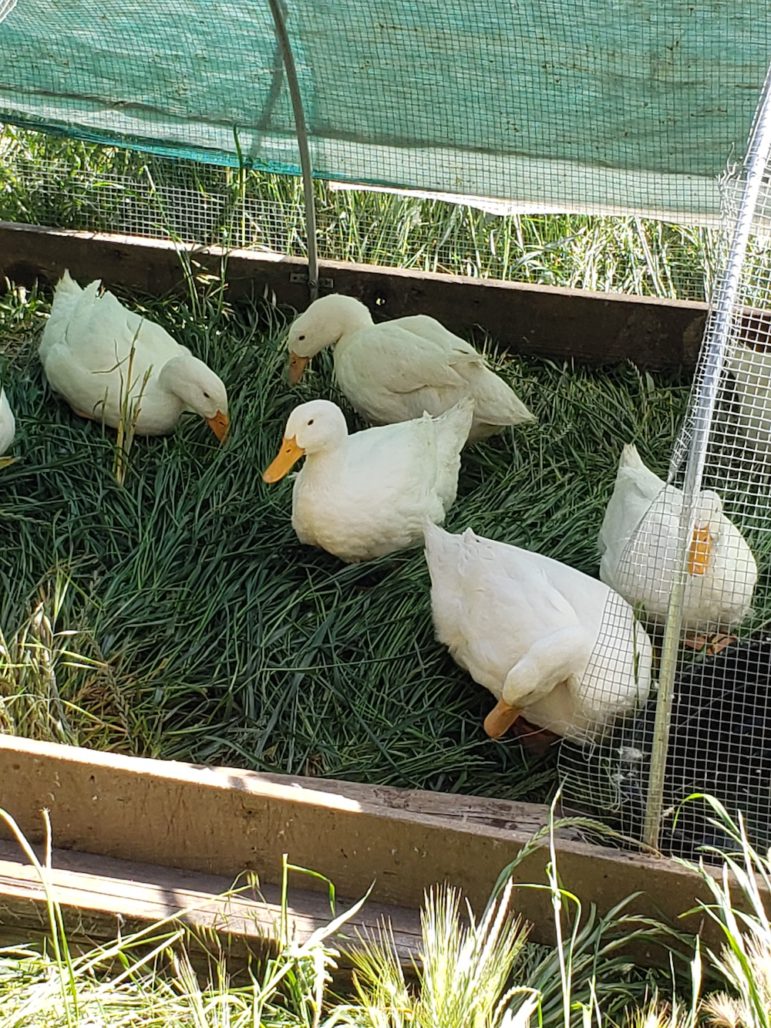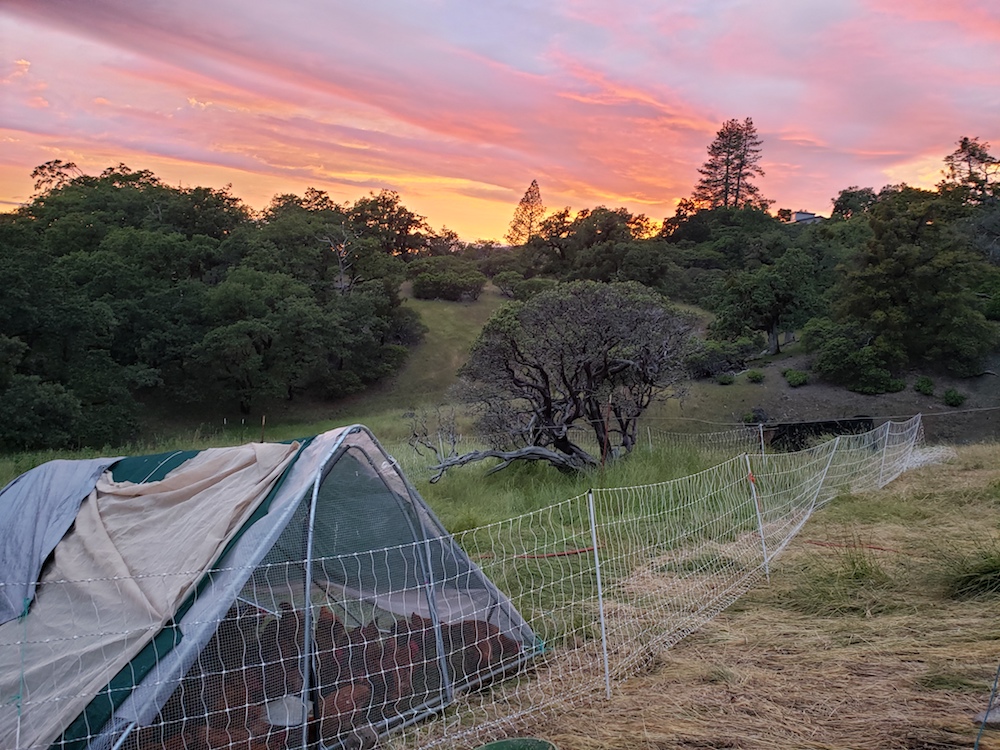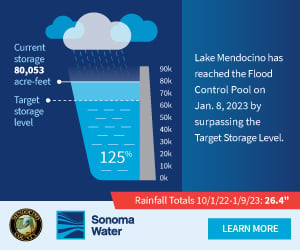This is our farm column from farmer Casey O’Neill. O’Neill is the owner operator of HappyDay Farms north of Laytonville, and a long time advocate for the cannabis community in Mendocino Co; more of his writing can be found here. The opinions expressed in this column are those of the writer. If you would like to submit a letter to the editor feel free to write to [email protected].
The drought is going to make for some balancing acts this year. I never want the different farm enterprises to have to compete for scarce resources because this means that one or another avenue will be short circuited from its potential. Water is going to be a limiting factor this year.
I have different crop, land-use and community goals that I try to balance in my planning processes so as to maximize benefit in each category and minimize potential negative impacts. Each year as the farm has grown, I too have changed, expanding my knowledge and capacity for farming.
Learning the lessons and skills that are acquired over long effort and dedication brings a sense of calm appreciation for the work. There is deep comfort in doing a job well-known, a returning of a fundamental cycle in life.
The chickens rotate across the pasture in a way that is ever-changing yet constant. Each season brings new techniques but also a sense of familiarity, like the return of an old friend who brings new information. We pass the time together in comfortable silence, just me and the work.
I find that I often prefer to work by myself, moving through the tasks and adjusting my planning as I check things off the list. I’m always looking for efficiencies, for ways that I can do more with less effort. If I have two tasks in a certain direction, can I do them both at once so that I don’t retrace my steps later? How can I knock off time or physical effort?
A farm lives or dies based on the people who carry forth the idea of the operation. Without the people, the land lives on but the concept of the farm disappears. When I envision the interconnected concepts that make up the farm, I see the full picture of land, people, equipment, infrastructure, plants and animals. I also have inevitable blind spots, and it is incumbent upon me to seek out other perspectives that can identify and illuminate these areas.
There is a crucial balance that operates over the fulcrum of context. New information is applicable to the farm only through the lens of understanding that comes with time. Knowing the evolution of the operation and the tendencies of climate and microclimate provide critical baselines for the “how” and the “why” of the way I do things. I always want new information, but it must be applied through context.
Young meat birds and turkeys are growing well and I’m getting better at my management systems. Every other year before this I had a much higher loss rate in the first few weeks, and this year only a handful of birds have died. I have yet to transfer them out onto pasture, so it’s a long way from the finish line but the start has been the best yet.
I soak feed for the animals for about 24 hours in order to increase digestibility and cut down on waste. The moist food doesn’t cause dehydration as much as the dry crumbles, so birds and pigs drink less and there is less waste from spillage because the food clumps in the bowls. This year though, I’ve been altering some of my feeding practices to move back to dry crumbles for the baby chicks.

The added moisture was creating condensation in the low brooders on damp nights, and it seems like there is less condensation with the dry food. Chicks don’t drink that much, so I just make sure they stay topped up on water. Once the birds are a couple weeks old, then I switch to the fermented food to cut down on total feed usage and costs.
Each year I consider and revise the practices, trying to figure out how to do things faster with less effort. This season I’ve switched to the 5 gallon waterer for the chicks in the medium brooder that are 3-4 weeks old. More volume of water means less times that I have to fill it, but it’s a balance because if it gets fouled then it’s not helpful. Elevating the waterer to the right height (tall enough to prevent most detritus but low enough that the birds can still drink comfortably) requires changing over time. These types of small adjustments are the course corrections that define success or failure in the long run.
The older I get the more I try to be aware of the potential for changes and adjustments. I try not to be dogmatic, to look for different ways of doing things and to absorb new information. Perhaps in paradox, I also deepen into my context so that I have a stronger sense of how I want to do things. These opposing characteristics make for fertile ground if I am able to be aware of it. As always, much love and great success to you on your journey!
Casey O’Neill owns and runs HappyDay Farms, a small vegetable and cannabis farm north of Laytonville. He is a long time cannabis policy advocate, and was born and raised in the Bell Springs area. The preceding has been an editorial column. The Mendocino Voice has not necessarily fact-checked or copyedited this work, and it should be interpreted as the words of the author, not necessarily reflecting the opinions of The Mendocino Voice.




